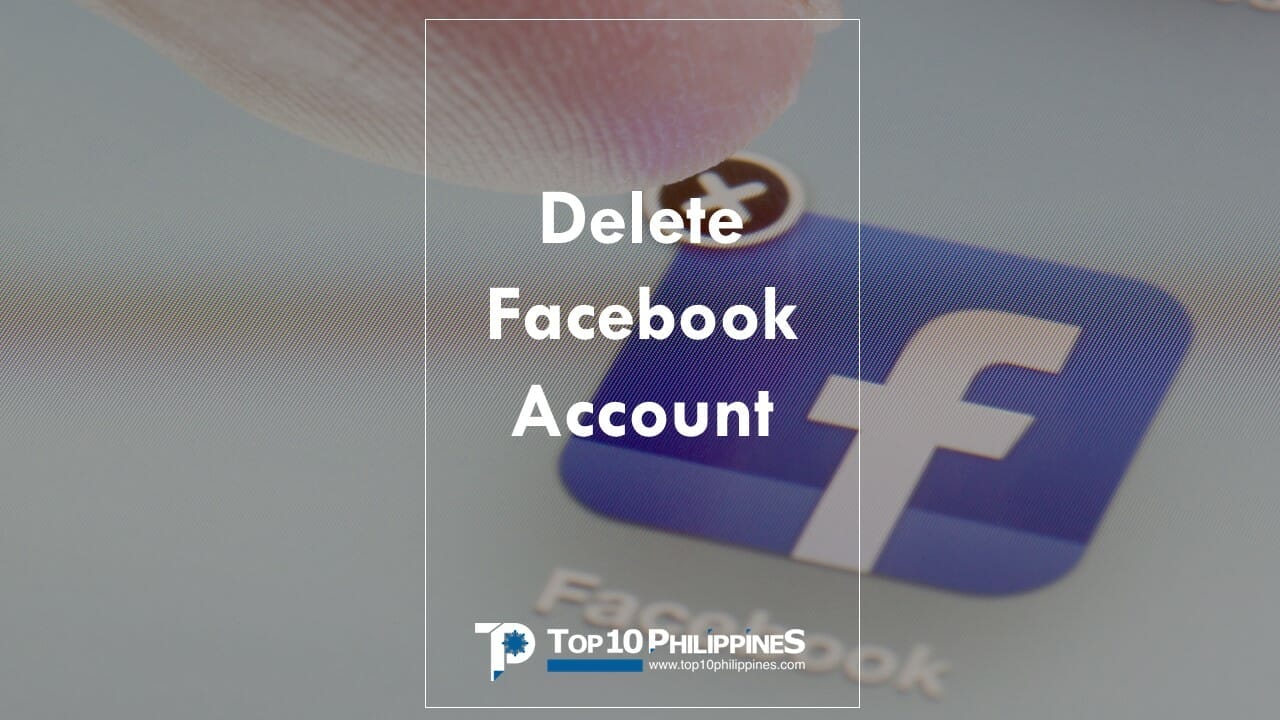Table of Contents
Are you looking for a way to delete your Facebook account? If you’re fed up with social media, deleting your Facebook account is one of the best ways to take control back from the platform. It can be confusing for Filipinos, however, as there are many steps to go through, and it’s hard to know where to start. In this article, we will discuss how to delete your Facebook account easily and straightforwardly.
Reasons to Delete Your Facebook Account
Social media has become a huge part of many Filipino’s lives and has certainly changed how we communicate. However, many people in the Philippines are now considering whether spending so much time on Facebook is worth it. If you’re thinking about deleting your Facebook account, here are some reasons this might be a good idea.
First of all, deleting your Facebook account can help protect your privacy and security. With recent data breaches and other security issues related to social media sites such as Facebook, taking back control of your personal information can be a great way to stay safe online. Deleting your account also means you won’t have to deal with unwanted ads or notifications from third-party apps that may access your profile information.
How To Delete Your Facebook Account
Here is the step-by-step process to delete your Facebook account:
Step 1: Back Up Your Data
If you’re planning to delete your Facebook account in 2023, the first and most important step is to back up your data. It’s helpful to know exactly what data is stored on your account to ensure that nothing is lost when you delete it. To back up your data, simply go to Settings > Your Facebook Information > Download Your Information. This option allows you to select which types of information are backed up, such as messages, photos, posts, and more. You can choose either a low or high-quality download option and then enter an email address to deliver the file when it’s ready. Once the file is downloaded, store it securely along with other important documents so it will be safe from future hacks or intrusions into your accounts. By taking these steps now, you won’t have any regrets later on when you finally decide to remove yourself from Facebook permanently.
Step 2: Deactivate Account
Deactivating your account is a crucial step in the process of deleting your Facebook account. The deactivation process will temporarily suspend your account and all its associated data from being used on the platform. This ensures that you can take the necessary steps to delete your account without worrying about potential data breaches or personal information being stolen from your profile. During this stage, it’s important to remember that while your profile won’t be available for others to view, the associated data will remain stored in Facebook’s databases. As such, you should ensure that you have taken appropriate measures before proceeding with the deactivation step of this process. After completing Step 2: Deactivate Account, it’s recommended that you take some time away from social media before continuing onto Step 3: Delete Your Account Permanently.
Step 3: Delete Apps & Pages
Facebook has been a part of many Filipino’s lives for years. Many users rely on the platform to keep in contact with friends and family, catch up on the news, and even find job opportunities. However, some may choose to delete their account due to personal preferences or privacy concerns. If you want to do so by 2023, step 3 is deleting apps and pages.
The process of deleting apps and pages is relatively easy and straightforward. First, you’ll need to go into your settings menu within Facebook. From there, locate the Apps & Pages tab and click it. You will then be presented with a list of all your current active applications and pages associated with your Facebook account. For each you wish to delete from your list, simply click the “Remove” button next to them – this will instantly remove them from your list once completed.
Step 4: Wait for Data Deletion
Deleting your Facebook account is important in preserving your online security and privacy. After completing the first three steps of deleting your Facebook account, it is time to wait for the data deletion process to occur.
This can take up to 90 days, depending on how much data you have shared on the platform. During this time, all your posts, shares, messages, and other information will be removed from Facebook’s servers and any third-party apps or websites that link to your Facebook profile. Your name may still appear in searches during this period, but it will eventually disappear after a few weeks. Additionally, if you decide that you want to reactivate your account within 30 days of deactivation, all of your data will remain intact until the full 90-day period has passed.
Step 5: Finalize Deletion
The fifth and final step in deleting your Facebook account in 2023 is to finalize the deletion. This step will completely remove all of your data from the platform, and it’s important that you take this step carefully. First, ensure you have followed each of the previous steps thoroughly. Once you’ve done that, proceed to the “Account Deletion” option found on the “Settings & Privacy” page on Facebook. Here, select “Delete Account,” then enter your password and click “Continue.” You’ll see a message confirming that you are about to delete your account permanently; read through it carefully before proceeding further. Finally, click “Delete Account” once more to complete the process. That’s it! Your Facebook account has now been deleted – congratulations!
Why Delete Your Facebook Account?
The Facebook era is coming to an end. With news of data breaches, privacy violations, and allegations of political interference in elections, the social media giant has seen its reputation plummeting over the past few years. Perhaps, you want to focus on other apps that can earn money.
While many people in the Philippines still use Facebook to stay connected with friends and family, an increasing number feel like it’s time to delete their accounts. The above instructions have shown you how to delete your Facebook account in five simple steps.
First and foremost, deleting your Facebook account will help protect your private information from being misused or abused by third parties. In addition, removing yourself from the platform ensures that you can no longer be targeted for ads based on your profile and browsing history. Finally, deleting your account eliminates any ability for platforms such as Cambridge Analytica to harvest data from it – safeguarding against influence campaigns from happening in the future.\
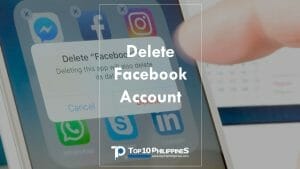
Pros of Deleting Your Facebook Account: Privacy, Time, Mental Health
Deleting a Facebook account can have many positive implications, particularly concerning privacy, time, and mental health.
The benefits of no longer having an active presence on Facebook include increased protection of personal information and improved psychological well-being. In addition, individuals may find they have more free time to devote to more meaningful activities than scrolling through a newsfeed.
An article entitled “How To Delete Your Facebook Account 2023” provides readers with guidance on how they can delete their accounts and reap the benefits of doing so. It outlines the simple steps involved in removing one’s profile from the platform and exploring how this action can positively impact life outside social media.

Cons of Deleting Your Facebook Account: Losing Connections, Social Media Benefits
There are various reasons why Filipinos choose to delete their Facebook accounts, including privacy concerns and a desire to minimize digital distractions. However, the act of deleting can come with a few drawbacks, namely losing connections and missing out on the potential benefits of social media.
While it is important to evaluate one’s personal relationship with social media to determine whether or not removing an account is best for them, it’s also essential to consider how disconnecting from the platform may affect relationships within one’s network. With Facebook being such an integral part of global connectivity, deleting an account could mean a loss of meaningful connections that are difficult, if not impossible, to replace.
On the other hand, many potential benefits are associated with using social media responsibly and mindfully.
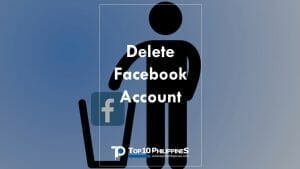
Alternatives to Facebook
Facebook has been one of the most popular social media platforms for years, but it’s not the only option available. In this article, we’ll look at alternatives to Facebook that can provide a similar experience with improved privacy options.
In recent years, Facebook has come under increased scrutiny over its privacy policies and data-sharing practices. With more people looking for an alternative to Facebook, there is now a wide range of options available. From smaller social networks like Mastodon or Diaspora to established players like TikTok, Twitter, and Instagram, users have plenty of choices regarding staying connected without sacrificing their data.
These alternatives offer different features and benefits depending on your needs. Whether you’re looking for a more private space or want to explore cutting-edge features, these platforms provide the perfect opportunity to try something new while keeping your data secure.
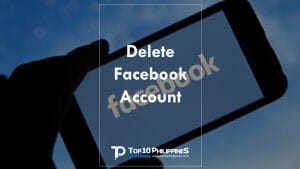
What Happens After Deleting Your Facebook Account?
The decision to delete a Facebook account is not one made lightly. From years of memories, conversations, and moments shared with friends and family, the idea of saying goodbye to it all can be daunting. However, understanding what happens after deletion is an important step in making that decision.
After deleting a Facebook account, all data associated with that account will no longer be available or visible to anyone on the platform. That includes profile information such as posts, photos, messages, and any other type of content previously shared by that user account. Additionally, friendships and connections between the deleted user’s account and other users’ accounts will be eliminated; if someone tried to search for the deleted user’s name or view their profile page, they would not find any relevant results.
In short – once your Facebook account has been deleted, there’s no going back!
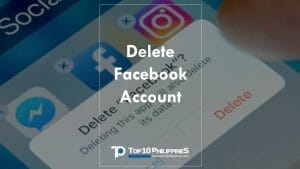
Summary: How To Delete Your Facebook Account
In conclusion, deleting your Facebook account can be difficult, but it may be the best choice for some Filipinos. It’s important to remember that there is no undo button when you delete your Facebook account, so make sure you are certain before taking this step. Additionally, consider downloading a copy of your information before deleting your account if you ever decide to reactivate it. Once you have made the decision and taken the necessary steps, then your Facebook account will be gone forever.
Permanently deleting a Facebook account is an important decision to make and can be accomplished easily if the right steps are taken. It’s important to consider all of the implications before deleting, such as how your online presence may be affected or what other accounts may need to be deleted as well. Taking a break from social media can benefit your mental health, but it’s important to consider all the factors before making this big decision.

